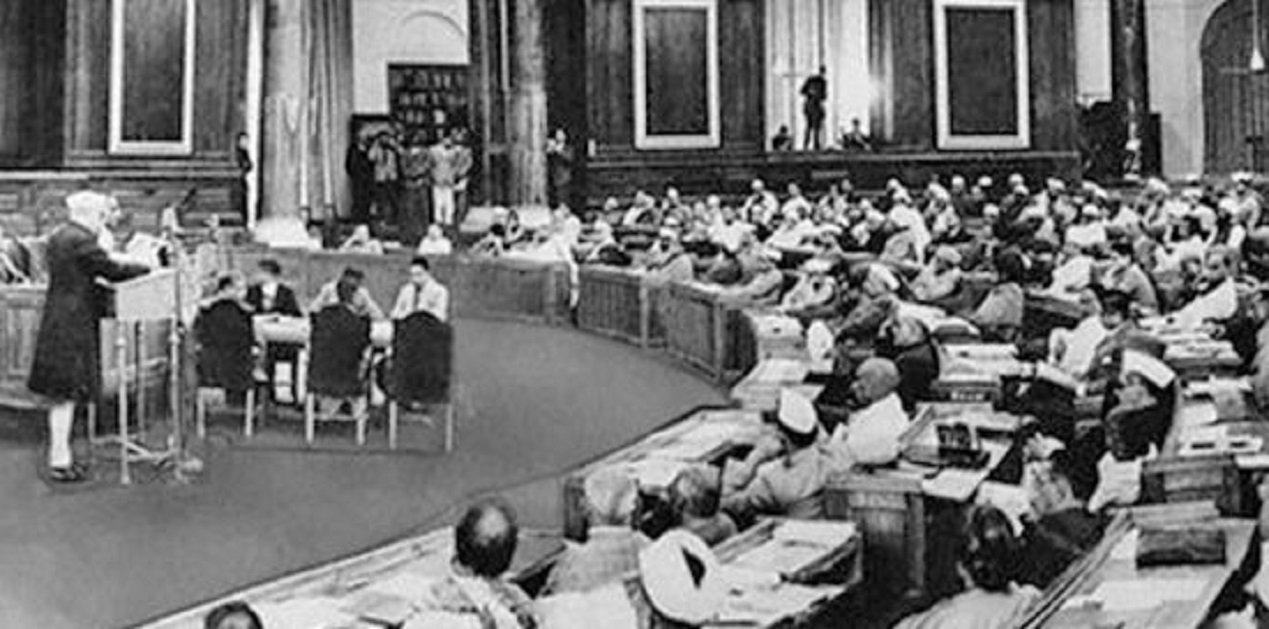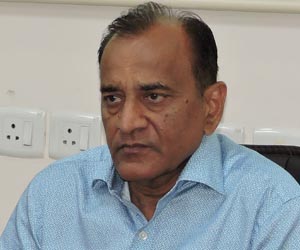Last month (June), the nation remembered Emergency, which had been imposed by the Indira Gandhi government in 1975. The horrors that followed have been repeatedly chronicled — large-scale arrests of the then Prime Minister’s political adversaries, the clampdown on the media, suspension of Fundamental Rights, forced sterilisations, etc. But what also happened during the Emergency was a change in the Preamble to the Constitution of India. It was done with a flourish, with no worthwhile debate or discussion. Something as fundamental as a change in the Preamble was pushed down the throats of the people. The words ‘socialist’ and ‘secular’ were added, and the revised Preamble read: “We, the people of India, having solemnly resolved to constitute India into a Sovereign Socialist Secular Democratic Republic…” This was done through the Constitution (42nd Amendment) Act, 1976.
Now, of course, that change has been taken for granted, with no political party challenging it for obvious reasons. But the hastiness that accompanied the change is in stark contrast to the detailed discussions that had taken place in the Constituent Assembly on the Preamble. It should remain a matter of enduring concern that a phrase which had been adopted by the wise framers of the Constitution only after extensive consultation, was amended without so much as an ‘excuse me’ by Indira Gandhi’s dictatorial regime.
The debate on the Preamble was held in the Constituent Assembly on October 17, 1949. It began with a member suggesting that the Preamble be taken up for discussion in November for the Third Reading, by which time the Drafting Committee of the Constitution would have submitted its final report to the House. However, another member, Maulana Hasrat Mohani objected to the proposal for delay, leading KM Munish to quip: “Once in my life I support the Maulana Saheb.” The chair, which then was occupied by the president of the Constituent Assembly, Rajendra Prasad, also disagreed with the suggestion to delay, and pointed out that since the Constitution as a whole was to be passed in the Second Reading, the Preamble had to be finalised without further postponement. The stage was thus set for a long discussion on the Preamble.
Maulana Mohani was in the forefront with three amendments, and the first one he moved was to replace, “We, the people of India, having solemnly resolved to constitute India into a Sovereign Democratic Republic…”, with “We, the people of India, having resolved to constitute India into a Sovereign Federal Republic…” or alternatively, “We, the people of India, having solemnly resolved to constitute India into a Sovereign Independent Republic”. He argued that the exclusion of the term ‘federal’ would mean replacing the British empire with an Indian empire, “which will only consist of States which will have got no power”. He also questioned the term ‘republic’ used in the context, and said that without the term ‘independent, India could well become a “republican dominion”. Besides, he added, if Jawaharlal Nehru had decided to remain in the Commonwealth, then we would not be republic in the true sense of the word. The Maulana argued vehemently for his amendment, but it found few takers and was negatived on the inclusion of either “independent’ or ‘federation’.
The other amendment the Maulana moved was rather bizarre. He wanted the Preamble to begin with, as follows: “We, the people of India, having solemnly resolved to constitute India into a Union of Indian Socialistic Republics to be called the UISR on the lines of USSR…” Maulana Mohani stuck to his argument despite members like Deshbandhu Gupta pointing out that the phrase was inconsistent with the Constitution that had been drafted. When the chair (Rajendra Prasad) asked him whether he believed that the Constitution was on the lines of the USSR, the Maulana refused to commit himself specifically to the question but said that the Constitution of India should be along the “lines and on the pattern” of Soviet Russia. Pushed to the wall by insistent members and queries by the chair, the Maulana stated that he had “nothing to do with the Soviet government or the Soviet Constitution”, and that he merely wished BR Ambedkar to accept his amendment. The change was put to vote and defeated.
It was then the turn of another member, HV Kamath, to move his amendment to the Preamble. Purnima Banerji, a member of the United Provinces, aware of the amendment to come, appealed to the chair to disallow any reference to ‘god’ in the Preamble, and said the “matter of God” should not be “made the subject of discussion between a majority and minority”. She then appealed to Kamath “not to put us to the embarrassment of having to vote upon God”. Kamath moved his amendment nevertheless, and it read as follows: “In the name of God, we, the people of India, having solemnly resolved to constitute India into a Sovereign Democratic Republic, and to secure to all her citizens justice, social economic and political; liberty of thought, expression, belief, faith and worship; equality of status and of opportunity; and to promote among them all fraternity, assuring the dignity of the individual and the unity of the nation in our Constituent Assembly, do hereby adopt, enact and give to ourselves this Constitution.” Various members remarked that the amendment lay only in the first line, which was proposed to begin in the name of God. Rohini Kumar Chaudhary from Assam inserted a lighter moment in the House when he wondered if he could move an amendment which referred to “Goddess” instead of “God”. But he was serious, he added, since he was a worshipper and firm believer in goddess Kamakhya. Kamath stood his ground and claimed that he had “taken only a slight liberty with the text of the Preamble” while sticking to the major points that Nehru had raised in his resolution of December 1946, popularly known as the Objectives Resolution. For good measure, he quoted a few lines from the Bhagavad Gita. Kamath found one supporter in VI Munaiswamy Pillay of Madras. But another member M Thirumala Rao, asked Kamath to withdraw his amendment since it provided for no alternative to those who did not believe in God. When the time came for the amendment to be voted upon, Kamath (and Maulana Mohani) insisted on a division. The amendment was negatived by 68:41, leading Kamath to remark that it was a “black day in the annals of India” and that “God save India”.
However, this did not prevent a few others members from persisting with the introduction of ‘God’ in the Preamble. Professor Shibban Lal Saksena too moved an amendment which essentially was on the lines of that of Kamath, except that it began with the following: “In the name of God the Almighty, under whose inspiration and guidance, the Father of our Nation, Mahatma Gandhi, led the nation from slavery to freedom, by unique adherence to the external principles of Satya and Ahimsa, and who sustained the millions of our countrymen and the martyrs of the nation in their heroic and unremitting struggle to gain complete independence of our motherland…” He said he had been pained by the opposition of some members to a reference to ‘God’ in the Preamble.
Acharya JB Kripalani, who represented the United Provinces, took strong exception to the amendment and said: “It is not behoving us to vote on this amendment. We must be very sparing of the use of the name of the Father of the Nation. My friend Shibban Lal knows that I yield to nobody in my love and respect for Gandhiji. I think it will be consistent with that respect if we do not bring him into this Constitution that may be changed and reshaped at any time.” Professor Saksena then withdrew his amendment. Thereafter, Pandit Govind Malviya sought to move an amendment which brought in, “By the grace of Parmeshwar, the Supreme Being, Lord of the Universe…” and also included Mahatma Gandhi’s name, but it was objected to by other members as being similar to the ones already negatived or withdrawn. The chair (Rajendra Prasad) too believed the matter had been covered in the previously defeated amendment.
It is interesting to note that the term ‘secular’ had not so far raised or discussed. Now, a member, Brajeshwar Prasad, who had as many as eight amendments to his name but moved just one, remarked that ‘secular’ had not found place in the Constitution as it stood before the House. “I do submit that this word ought to be incorporated in our Preamble because it will tone up the morale of the minorities and it will check the spirit of loaferism that is rampant in politics. However, while Brajeshwar Prasad argued for the word ‘secular’ to be added to the Preamble, he did not mention it in his amendment, which had terms such as “Cooperative Commonwealth” and “Socialist Order”. He spoke for securing to Indian citizens a variety of rights including adequate livelihood, free and compulsory education, free medical aid and compulsory military training, leading another member, PD Deshmukh, to jovially comment, “What about a camel and motorcycle?”
There were a slew of other amendments moved, discussed and negatived, or sought to be moved by various members. The point is: The Preamble to the Constitution of India was finalised only pursuant to deep discussions. Every word of it was debated at length. And yet, 26 years after it was adopted, the Preamble was drastically changed during the Emergency at the whim of just one person and with not a semblance of the thought that had gone in finalising the original Preamble.
(The writer is an author, senior political commentator and public affairs analyst)
Image Source: https://thewire.in/wp-content/uploads/2016/10/constituentassembly1.jpg









.jpeg)
Post new comment